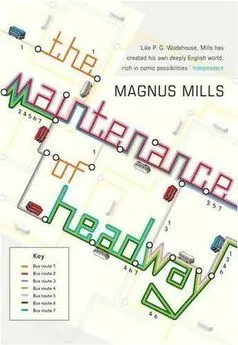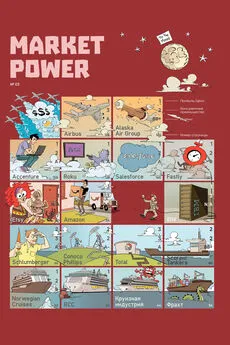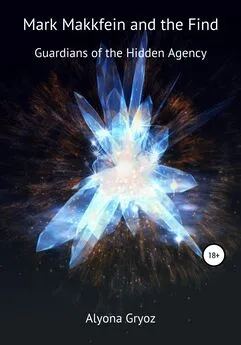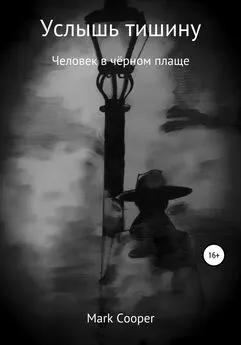Mark Mills - Amagansett
- Название:Amagansett
- Автор:
- Жанр:
- Издательство:неизвестно
- Год:неизвестен
- ISBN:нет данных
- Рейтинг:
- Избранное:Добавить в избранное
-
Отзывы:
-
Ваша оценка:
Mark Mills - Amagansett краткое содержание
Amagansett - читать онлайн бесплатно ознакомительный отрывок
Интервал:
Закладка:
‘I’m not. I want to believe you will.’
‘There’s a good chance, Mrs Jencks.’
He tried to reach out to her with his eyes, to let her know he knew she was holding back, that she could trust him.
‘If I think of anything,’ she said, ‘I’ll be sure to give Chief Milligan a call.’
It was a moment before he realized he’d been had. She’d seen him tense up.
‘Or maybe I won’t bother the Chief,’ she added, holding him in her dark eyes.
‘He’s got a lot going on right now,’ said Hollis, nodding.
Thirty-One
Passing through East Hampton, Conrad stopped briefly to withdraw some money from the bank. For a moment he thought he had spotted the tail, but the man in question climbed into a car and drove west on Main Street.
It wasn’t until he was a couple of miles north of town that he picked up the black sedan in the rear-view mirror, hanging well back. He didn’t slow or accelerate in order to confirm his suspicions. To have done so would have meant jeopardizing everything.
He entered the outskirts of Sag Harbor, turning into Union Street. He noted that the Whaler’s Church was still in need of a coat of paint. As long as he’d known it, there had always been a pleasing air of shabbiness about Sag Harbor. Unable to sustain the glories of its whaling heyday, the town wore its past proudly, though a little uneasily. The streets were peppered with grand residences built in any number of styles—Federalist, Georgian, Italianate and Greek Revival. Some verged on the ostentatious, and most had fallen into a state of disrepair. Their sills were rotting, their roofs patched, their paintwork flaking, their gardens neglected.
The merchants, whaling captains and shipbuilders who had first thrown up these temples to their own prosperity were long gone, their families forced to sell to the manufacturers who had washed in on the back of the tide before it finally turned for good. The factories, foundries and potteries had closed, and Sag Harbor had slipped into gracious decline.
Like some dowager princess fallen on hard times, the evening gown may have been a little frayed around the edges, but the jewels were real. No other South Fork town could boast a Main Street to match, with its imposing brick edifices, its mansions, and its stores with their generous plate-glass windows.
It was here, on Main Street, that Conrad parked the car, just up from the Municipal Building. A group of young men was gathered on the sidewalk, loafing—a favorite Sag Harbor pastime, and one which lent the town its unique whiff of torpor.
The black sedan had not followed Conrad into Union Street, but it now appeared at the foot of Main Street, down near the waterfront, where the masts of the ships had once bristled.
It turned, crawling slowly towards him.
Conrad crossed the street in front of it, fighting not to turn and stare.
There was no need.
He caught the profile of the driver reflected in the window of the haberdasher’s beside the narrow office building he was heading for.
Under usual circumstances it took Walter J. Scarlett exactly six and a half minutes to walk from his office to his house, a little less the other way, what with the gradient. Today, he made the journey in well under six minutes; but then he had known it was going to be an unusual day from the moment he first showed up for work.
His secretary of a year’s standing, Elsie, was sitting at her desk devoid of lipstick for the first time ever. He hadn’t commented on this detail at the time, fearing that he might be flattering himself. By noon, it was clear that he wasn’t. He was too much of a gentleman to make the first move, but not so much of one that he hadn’t reciprocated when her lips, untainted by any incriminating color, had sought out his while he was helping her with some filing.
By two o’clock he had squeezed both her breasts, though not at the same time, and attempted to slide his hand up her skirt.
A run of afternoon appointments put paid to any more shenanigans, and as Elsie prepared to leave for the day he feared she was already suffering from terminal regret.
She hadn’t been. And now he was running ten minutes late, or a little under, he noted, as he pushed open the front door of his house.
They were seated at the table, waiting patiently, a supper of cold cuts spread out before them.
‘Daddy, you’re sweating,’ piped up his son.
‘I didn’t want to be late.’
‘But you are late,’ said his wife.
‘I meant any later, ’ he replied sweetly, pecking her on the cheek, ruffling the children’s hair, then taking his place at the head of the table.
He had barely finished saying Grace when there was a knock at the door. His wife went to answer it. From where he was seated he had no view of the entrance hall, but he could hear the exchange with the gentleman.
‘Is Mr Scarlett in?’
‘What’s it regarding?’
‘It’s a private matter.’
‘We’re having supper, I’m afraid—’
That was as far as she got. He heard a scuffle, a little yelp, and then the man appeared in the dining room, steering Walter’s wife by the elbow. Walter pushed back his chair and got to his feet.
‘Sit the hell down,’ snapped the man. ‘You too,’ he added, forcing Walter’s wife towards her chair.
‘Who do you think you are, barging in here?’ said Walter, reaching for the phone on the sideboard.
The man dropped to one knee at the baseboard, pulled a knife from somewhere around his ankle and cut the telephone cable. Rising to his feet, he said, ‘I’m the man who’s going to mess you and your family up unless you put your ass in that chair this second.’
He pointed with the knife, its slender blade flashing in the sunlight slanting through the window.
Walter’s daughter began to sob. He glanced at his wife, her eyes wide with fear, and they both sat down.
‘That’s better.’
The man circled the table, examining the food.
‘Looks good.’ He leaned over and speared a shard of ham just sliced from the bone. ‘You want some, son?’
The ham hovered in front of Walter Jr’s face, the tip of the blade inches from his eyes.
‘Go on, I insist.’
Walter Jr’s bottom lip began to tremble. The man shrugged, then ate the ham off the tip of the knife.
‘What do you want?’ asked Walter, wishing there was more authority in his voice.
‘Conrad Labarde.’
Labarde—his four o’clock appointment—the tall man who’d come to see him with the interesting legal conundrum.
‘What about him?’
‘He came to see you. I want to know why.’
Walter was about to plead the sanctity of an individual’s relationship with his lawyer, when the man said, ‘And don’t give me any crap about client-attorney confidentiality.’
It was a principle Walter prided himself on upholding. And he abandoned it without hesitation. The man listened closely to his account of the discussion with Labarde, interrupting every so often to ask a question. Finally, he seemed satisfied.
‘Enjoy your meal,’ he said, making for the entrance hall. ‘Oh.’ He stopped and turned. ‘If you tell anyone about this conversation I’ll cut out your daughter’s lips and feed them to your wife.’
Later that evening, while discussing with his wife which real estate agent should handle the sale of their house, it occurred to Walter J. Scarlett that even if he had ignored the threat and gone straight to the police, he would have struggled to give them an accurate physical description of the man.
Thirty-Two
Manfred lay on his back in the darkness, torn between leaving and sliding into alcoholic slumber. He glanced to his right and the matter settled itself.
It was as though the moonlight washing through the window had melted her face. Her mouth sagged open, the flesh was slack and loose around her jaw, gathered in folds. She had lied about her age, he’d guessed that at the time, mentally topping up the tally by four or five years. Looking at her lying there, laid bare by sleep, he revised that estimate by another five years.
Where was she from? Savannah? Charleston? Somewhere down South. They had hardly spoken over dinner at the Maidstone Club, just enough to establish that she was staying with the Van Allens; not in their ghastly new house—the one that looked like the bridge of an ocean liner—but in the old guest cottage at the end of the garden. Manfred had taken the information as an invitation, and he’d been right to do so. But now it was time to leave.
He eased himself out of the bed, his head throbbing as he stooped to recover his clothes. He carried them into the living room, dressing there so as not to wake her, already working through the consequences of his actions.
He could rely on his friends’ discretion, he knew that. Not that it really mattered. It wasn’t as if his relationship with Helen was set in stone. Not yet, anyway. What would Senator Dale really do if he got wind of a one-night tryst?
Nothing. Nothing whatsoever. That was the truth.
Beneath the puff and the posturing, the Senator was a pragmatist. He knew better than anyone that his daughter’s union with Manfred was little short of a business deal: the Senator’s considerable political muscle in exchange for his daughter’s elevated status, one which would see the Dale name etched into the history books.
It was almost two in the morning when he returned to the house on Further Lane, and he was surprised to see the ground-floor lights burning bright through the trees as he wended his way down the drive. His father and Gayle weren’t due out till the following evening, and Richard was inclined to turn in well before midnight.
He parked near the front door and entered.
‘Hello.’
Silence. No. The dim sound of music—Beethoven—coming from the drawing room.
The room was empty, but the doors to the terrace were open.
‘Richard?’
‘Out here.’
He was seated in a rattan chair, staring out across the lawn. Manfred could tell immediately that something was wrong. The ashtray on the low table beside him was almost full, the wine bottle near empty.
‘Who was she?’ asked Wakeley without turning.
‘No one. You don’t need to worry.’
‘Oh, but I do. And so do you.’
There was a manic edge to his voice, uncharacteristic and worrying.
‘Richard…?’
Richard pointed to a chair. Only when Manfred had pulled it up and sat down did Richard turn and look at him.
‘It’s Labarde. He went to see a lawyer.’
Manfred felt breathless all of a sudden. ‘A lawyer?’
‘It looks like he might have some kind of document.’
‘What document? What are you talking about?’
‘Calm down.’
‘I am calm. What document, damn it!?’
‘I don’t know exactly. Our man…he managed to speak to the lawyer. It seems Labarde wanted to know what weight a document written by a dead person would carry in a court of law.’ He paused. ‘A document which had come to light since that person’s death, implicating the author and others in a crime.’
‘A diary? A letter? What?’
‘Labarde said it came to him via a lawyer. He didn’t have it with him, he didn’t say what exactly.’
‘A confession…’
‘That’s what it sounds like. Written to Labarde and to be delivered to him in the event of her death.’
‘Jesus Christ.’ He reached for one of Richard’s cigarettes and lit it. ‘He’s bluffing.’
‘Except he didn’t come to us, Manfred, he sought legal advice, not knowing he was being followed.’
Читать дальшеИнтервал:
Закладка:









